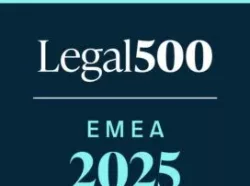On 20 November 2024, the Supreme Court handed down its unanimous judgment in R (on the application of Cobalt Data Centre 2 LLP) v HMRC [2024] UKSC 40. Stephen Kosmin successfully appeared for HMRC. The judgment provides welcome clarity on the law of contractual variations and the proper construction of s.298 of the Capital Allowances Act 2001.
In 2006 Highbridge North Tyneside Developer One Ltd (the “Developer”) and Highbridge North Tyneside Contractor One Ltd (the “Contractor”) were established as special purpose vehicles, with a view to further development of land within Tyne Riverside Enterprise Zone and to ensure that the ability to claim generous enterprise zone allowances under the Capital Allowances Act 2001 (“EZAs”) on future development of the site would not cease. On 17 February 2006 the Contractor and Developer (referred to as the “Owner” in the relevant contract), executed a contract (referred to as “the Golden Contract”) which incorporated the conditions of the JCT Standard Form of Building Contract with Contractor’s Design 1998 Edition (the “JCT Contract”) and made modifications to that JCT Contract. The Golden Contract was, therefore, entered into the day before the enterprise zone at the site expired and formed part of arrangements that both the Developer and Contractor hoped would ensure that EZAs could still be claimed on future construction work on the Site. Instead of proceeding with any of the six works options specified in the Golden Contract (each of which was specific as to the contract sum, the site, and the building to be constructed), the contracting parties instead issued a number of change orders, purportedly under Clause 12 of the JCT Contract, in which the commissioning, design and construction of two new data centres was instructed for over £54 million and over £42 million respectively.
The Supreme Court accepted HMRC’s submissions that Clause 12 did not permit a change from one (already selected) building to another specified in a different works option, still less to choosing some completely different type of building, on a different site, outside the confines of any of the six works options specified in the Golden Contract. Consequently, the taxpayers’ expenditure fell outside the scope of s.298 of the Capital Allowances Act 2001 and did not benefit from the generous EZAs.
The Supreme Court also considered how to determine whether a contractual change takes effect as a variation to, or replacement of, an existing contract. The Supreme Court held that that turned on the parties’ objectively ascertained intention. However, it was possible for there to be exceptional cases where the Court will not give effect to the parties’ intention if it brings the law into disrepute and damages its legitimacy in the eyes of the public.
Stephen Kosmin acted for HMRC with David Ewart KC, Edward Waldegrave and Laura Ruxandu. The appellant was represented by Laurence Rabinowitz KC and Niranjan Venkatesan.
A copy of the judgment is found here.









